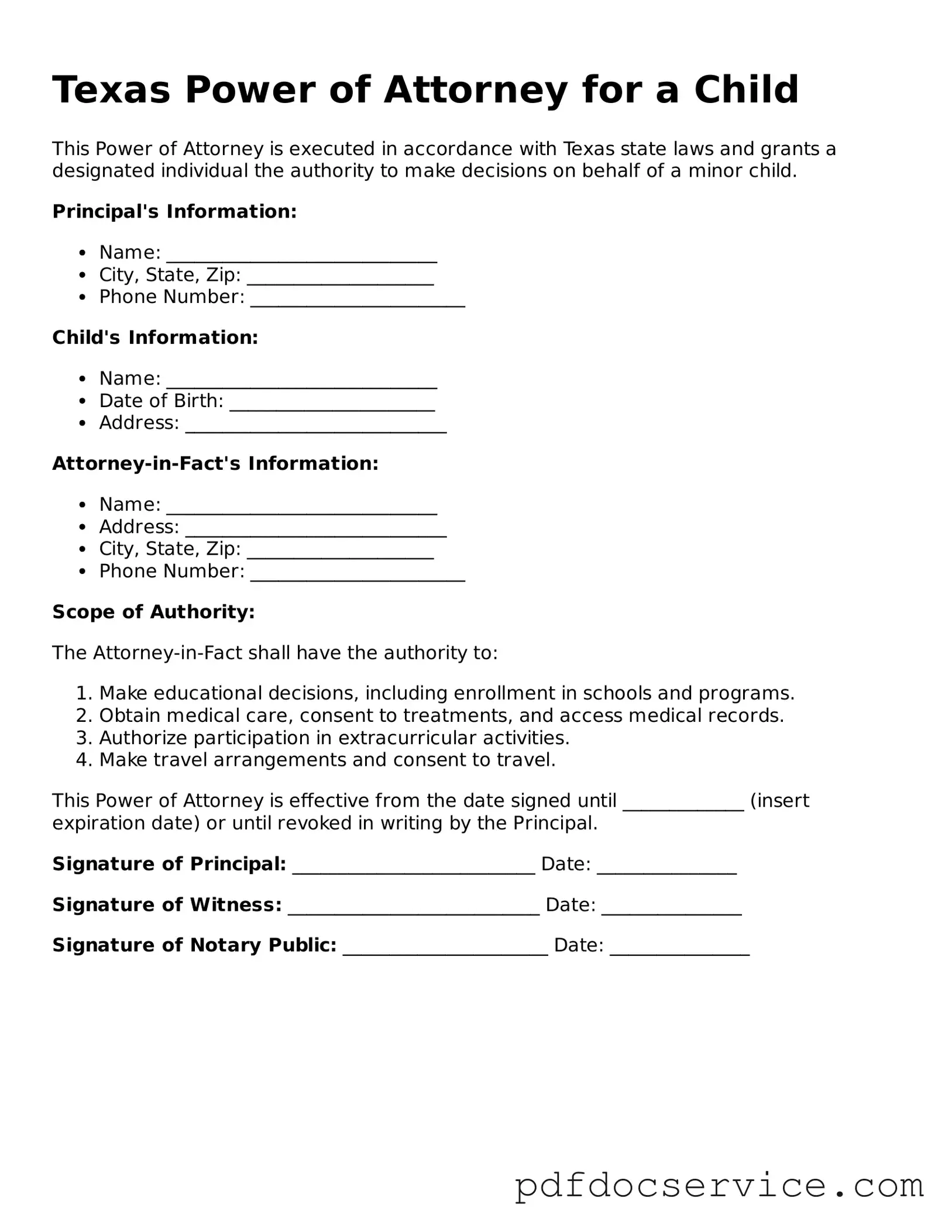Printable Power of Attorney for a Child Template for Texas
The Texas Power of Attorney for a Child form allows a parent or legal guardian to designate another adult to make decisions on behalf of their child. This legal document is essential for ensuring that a trusted individual can manage the child's needs in the parent's absence. Understanding its purpose and proper use is crucial for any parent considering this option.
Open Power of Attorney for a Child Editor

Printable Power of Attorney for a Child Template for Texas
Open Power of Attorney for a Child Editor

Open Power of Attorney for a Child Editor
or
Get Power of Attorney for a Child PDF
Finish the form now and be done
Finish Power of Attorney for a Child online using simple edit, save, and download steps.